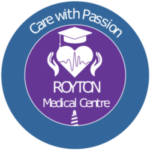Coronavirus (COVID-19)
Please visit NHS 111 Online or NHS Conditions for further information.
COVID-19 is a new illness that can affect your lungs and airways. It’s caused by a virus called
coronavirus.
What’s the risk of coronavirus in the UK?
The UK Chief Medical Officers have raised the risk to the public from low to moderate.
Health professionals are working to contact anyone who has been in close contact with people who have coronavirus.
What’s the risk of coronavirus for travellers?
There are some countries and areas where there’s a higher chance of coming into contact with someone with coronavirus.
See our coronavirus advice for travellers.
Symptoms of coronavirus
The symptoms of coronavirus are:
- A new persistent cough
- A high temperature
- Shortness of breath
But these symptoms do not necessarily mean you have the illness.
The symptoms are similar to other illnesses that are much more common, such as cold and flu.
How coronavirus is spread
Because it’s a new illness, we do not know exactly how coronavirus spreads from person to person, similar viruses are spread in cough droplets.
It’s very unlikely it can be spread through things like packages or food.
Do I need to avoid public places?
Most people can continue to go to work, school and other public places.
You only need to stay away from public places (self-isolate) if advised to by the 111 online coronavirus service or a medical professional.
How to avoid catching or spreading coronavirus
Do
- wash your hands with soap and water often – do this for at least 20 seconds
- always wash your hands when you get home or into work
- use hand sanitiser gel if soap and water are not available
- cover your mouth and nose with a tissue/ your sleeve (not hands) when you cough/ sneeze
- put used tissues in the bin straight away and wash your hands afterwards
- try to avoid close contact with people who are unwell
Don’t
- touch your eyes, nose or mouth if your hands are not clean
Check if you need medical help
NHS 111 has an online coronavirus service that can tell you if you need medical help and advise you what to do.
Use this service if:
You think you might have coronavirus in the last 14 days you’ve been to a country or area with a high risk of coronavirus – see our coronavirus advice for travellers you’ve been in close contact with someone with coronavirus
Use the 111 coronavirus service
Information:
Do not go to a GP surgery, pharmacy or hospital.
Call 111 if you need to speak to someone.
Getting help in Scotland, Wales or Northern Ireland
Scotland: call your GP surgery or call 111 if your surgery is not openWales: call
111Northern Ireland: call 111
How to self-isolate if you’re asked to
If there’s a chance you could have coronavirus, you may be asked to stay away from other people (self-isolate).
This means you should: Stay at home not go to work, school or public places not use public transport or taxis ask friends, family members or delivery services to do errands for you try to avoid visitors to your home – it’s OK for friends, family or delivery drivers to drop off food at your door.
You may need to do this for up to 14 days to help reduce the possible spread of infection.
Read more coronavirus self-isolation advice.
Treatment for coronavirus
There is currently no specific treatment for coronavirus.
Antibiotics do not help, as they do not work against viruses.
Treatment aims to relieve the symptoms while your body fights the illness.
You’ll need to stay in isolation away from other people until you’ve recovered.
More information:
GOV.UK: coronavirus action plan
GOV.UK: information on coronavirus and the situation in the UK
NHS England: coronavirus information for health professionals
